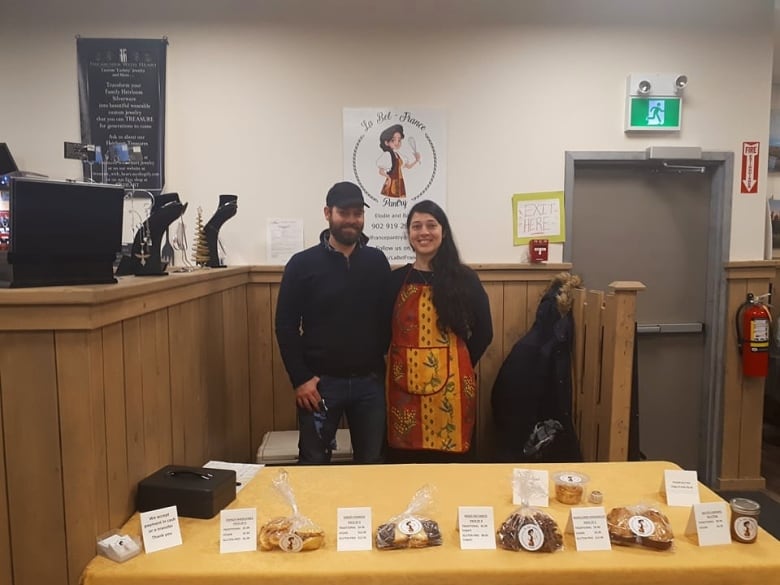Pandemic sees sales triple for Cape Breton Food Hub
'It has been pretty challenging and we had to adapt in many ways."

An online marketplace connecting farmers with customers in the local area has seen sales skyrocket throughout the pandemic.
Alicia Lake, who manages the non-profit Cape Breton Food Hub, said their customer base more than doubled in 2020. Sales have tripled to just under $489,000 since 2019.
"People here, we all really care about each other," said Lake. "And we really care about supporting businesses that make this island so great."
Storefronts shuttered during the pandemic. It left few options for farmers and food businesses.
One of the biggest challenges came when local farmers' markets and restaurants were closed, or opened for takeout only.
Elodie Nasone started La Bel-France Pantry with her partner, Bart Pennewaert, in January.
They opened a market stall in Sydney, selling traditional French baked goods such as madeleines and crêpes.
The couple later relied on the food hub when the market closed due to a rising number of COVID-19 cases.

"We don't know where the world is going," said Nasone. "So, yeah, it has been pretty challenging and we had to adapt in many ways."
The food hub had to pivot to carry out its own distribution. With the tightening of retail restrictions, it added a home delivery option in partnership with CB Eats.
"As more people want to stay in and avoid the rush of trying to get local items, it just became a really good solution for them," said Lake.
"We know what we're doing is really important, as far as keeping local businesses in business, and local farmers, farming."

Humble beginnings
Lake said the food hub started out in 2015 as part of a two-year pilot project to develop a local food distribution model.
What began with only 50 members has grown to more than 700.
Members also sign up to become producers or sellers of fresh vegetables, fruit, herbs, meat, breads, prepared meals and other products.
Lake said the co-op's growth was brought on by a number of factors, including a group of more than four dozen volunteers.
"There's been a lot more people really interested in where their food comes from," she said.
New building and meal kits
Last summer, the food hub embarked on a million-dollar project.
The proposal will see the former Celtic Country Market space in Bras d'Or transform into a commercial kitchen, processing area, retail space and storage facilities.
The co-op purchased the building money from Atlantic Canada Opportunities Agency, Invest Nova Scotia, Cape Breton Partnership and private donors.
Lake said their commercial kitchen space is now available for rent.
"It's a very large kitchen with a lot of amazing equipment that will allow anyone from a caterer or a person who wants to make a line of jams or jellies or hot sauces to come in," she said.
Lake said the food hub is also designing pre-made meal kits, using local ingredients.
"Meals kits are something we've been kind of keeping an eye on for a few years," she said. "The concept is to make it a lot easier to cook meals at home and having the planning part done for you."
By the end of summer, the food hub expects to complete its processing space within the building.

Lake said the building will allow farmers to wash, peel, chop and freeze their vegetables.
"It's going to mean that we can start taking those raw vegetables, whole vegetables and doing some value-adding with them," Lake said.
"That makes them a lot more accessible for larger buyers, such as institutions such as hospitals and schools."
Lake said a retail counter will offer products that are available through the food hub. That project is expected to launch later this summer.